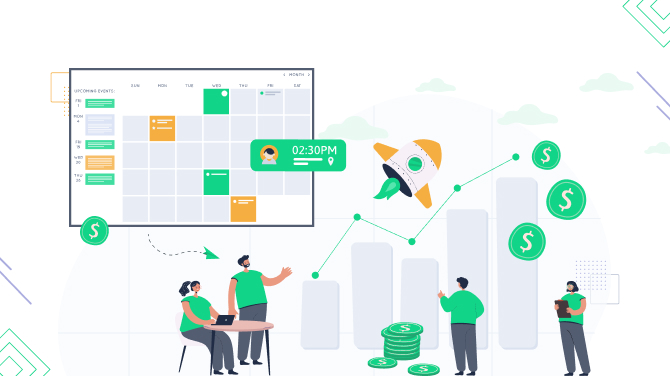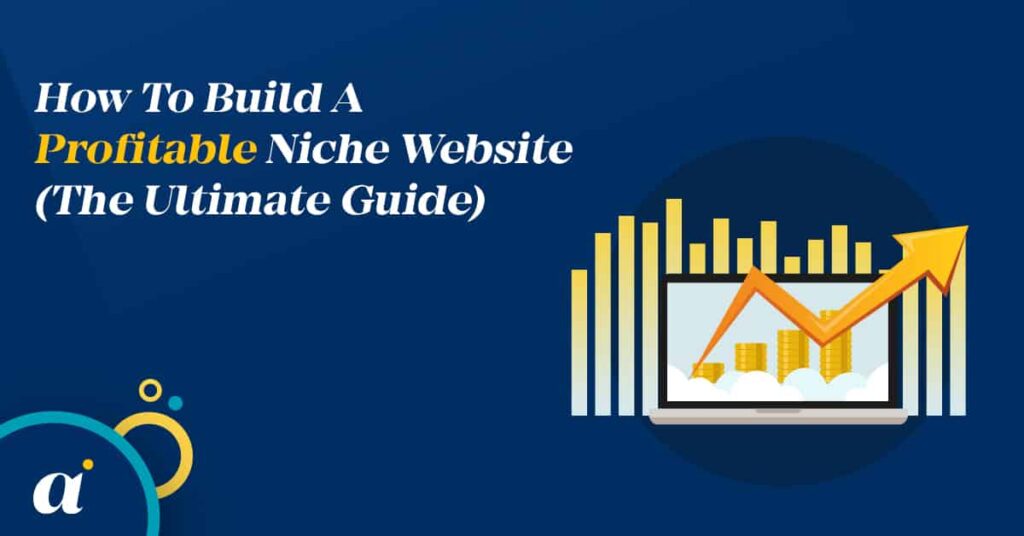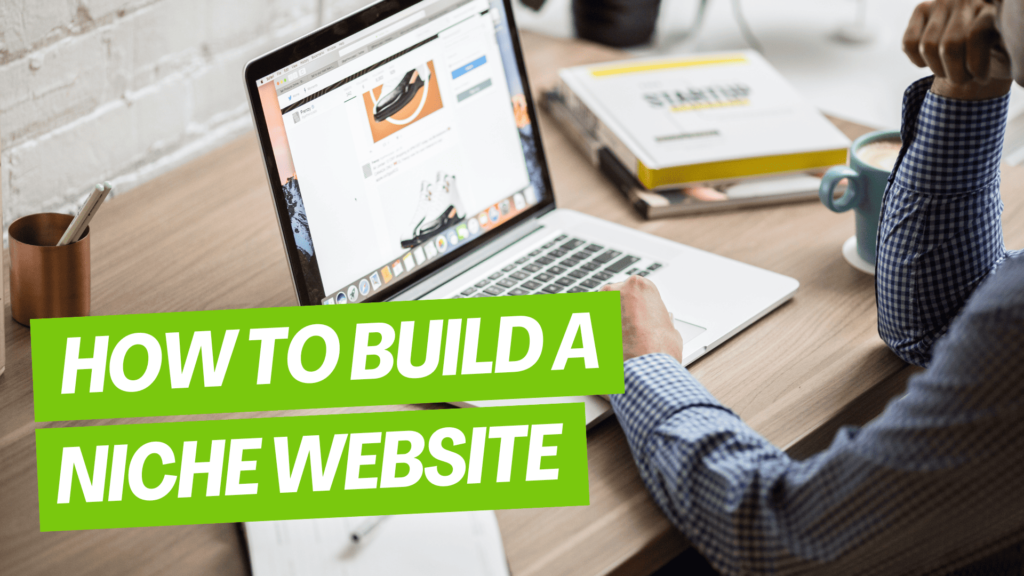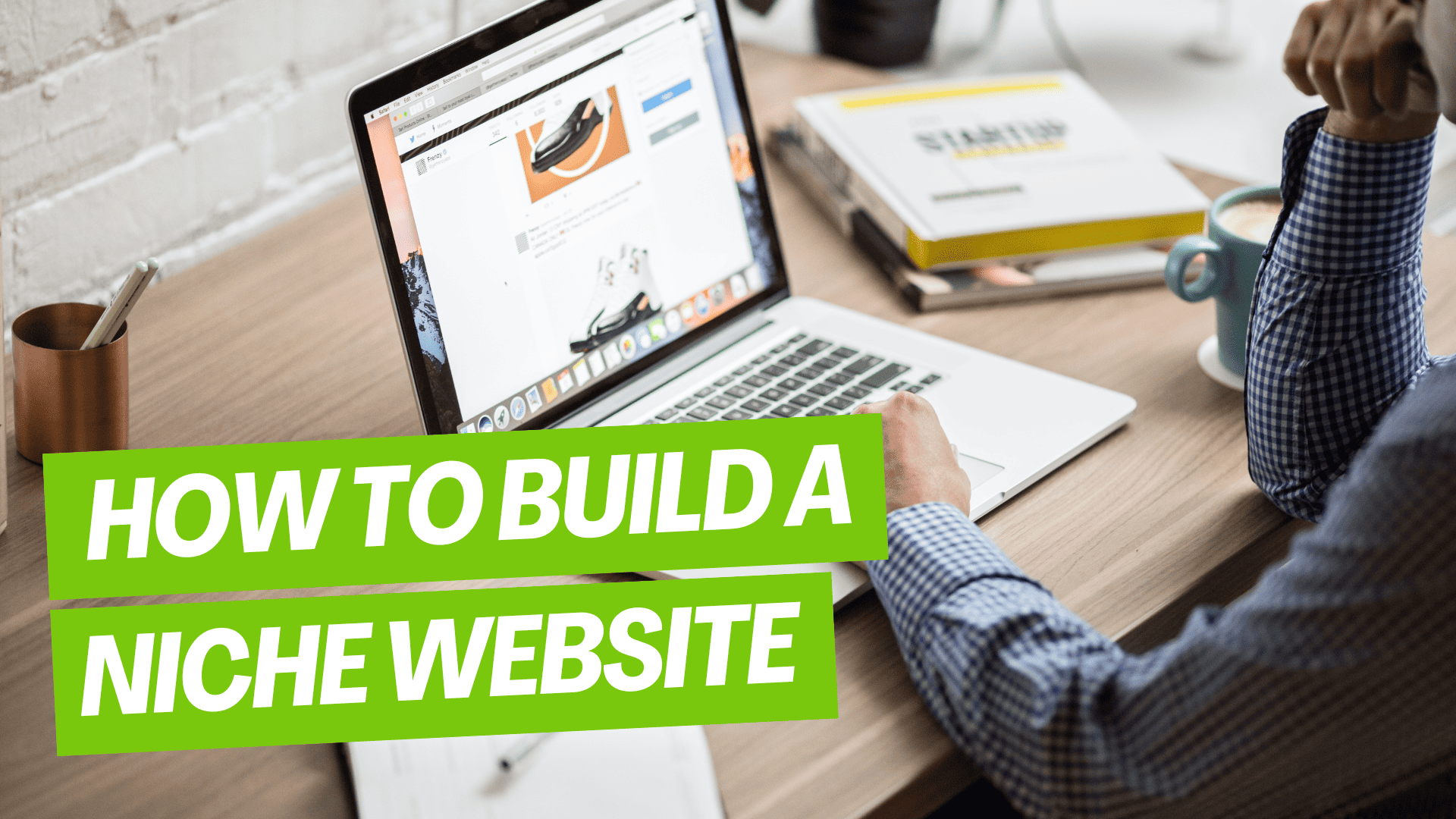To build a profitable website, focus on quality content and user experience. Optimise for search engines and monetise effectively.
Creating a profitable website requires careful planning and execution. Start by identifying your target audience and their needs. Develop high-quality, engaging content that provides value to your visitors. Ensure your website design is user-friendly and mobile-responsive. Implement strong SEO practices to improve visibility and attract organic traffic.
Use analytics tools to track performance and make data-driven decisions. Explore various monetisation methods such as advertising, affiliate marketing, or selling products and services. Regularly update your content and optimise your strategies to maintain relevance and profitability. Consistent effort and attention to detail will help you build and sustain a successful website.

Credit: www.bookingpressplugin.com
Choosing Your Niche
Finding the right niche is crucial for a profitable website. Your niche determines your audience. It shapes your content and helps you stand out. Follow these steps to choose your niche wisely.
Identifying Interests
Start by listing your interests. Think about what excites you. Passion drives success and keeps you motivated. Here are some questions to ask yourself:
- What topics do you enjoy reading about?
- What skills do you have?
- What hobbies do you pursue?
Use these answers to narrow down your niche. Choose something you love. This will make content creation easier and more enjoyable.
Analysing Market Demand
Once you identify your interests, check if there’s a demand. A niche with no audience won’t be profitable. Use tools like Google Trends and Keyword Planner to gauge interest.
| Tool | Purpose |
|---|---|
| Google Trends | Check popularity of search terms over time |
| Keyword Planner | Find search volumes for specific keywords |
Look at forums and social media groups. See what people are talking about. This can give you insights into market demand.
Also, research your competitors. Analyse their websites. See what works and what doesn’t. This can help you refine your niche and identify gaps in the market.

Credit: www.buzzlogic.com
Planning Your Content
Planning your content is crucial for building a profitable website. Your content strategy should focus on what your audience wants. This helps in ranking higher on search engines and driving traffic.
Keyword Research
Keyword research is the backbone of your content strategy. It helps you understand what your audience is searching for. Use tools like Google Keyword Planner or Ahrefs for this purpose.
- Identify high-volume keywords.
- Look for low-competition keywords.
- Find long-tail keywords.
Use these keywords naturally in your content. This can increase your chances of ranking higher on search engines.
Content Calendar
Creating a content calendar is essential for consistency. It helps you plan, organize, and schedule your content. A content calendar ensures you always have fresh content for your audience.
| Week | Topic | Keywords | Format |
|---|---|---|---|
| 1 | How to Start a Blog | start a blog, blogging tips | Article |
| 2 | SEO Tips for Beginners | SEO tips, beginner SEO | Video |
| 3 | Content Marketing Strategies | content marketing, marketing strategies | Infographic |
Having a content calendar helps you stay on track. It also makes your content planning more manageable.
Designing Your Website
Building a profitable website starts with good design. A well-designed site captures attention and keeps visitors engaged. This section will guide you through the essential steps to create an attractive and functional website.
Selecting A Platform
Choosing the right platform is crucial for your website’s success. Popular platforms like WordPress, Wix, and Squarespace offer various features.
- WordPress: Highly customisable with many plugins. Ideal for blogs and e-commerce.
- Wix: Easy to use with drag-and-drop features. Great for beginners.
- Squarespace: Beautiful templates and built-in SEO tools. Perfect for portfolios.
Consider your needs before choosing a platform. Think about ease of use and scalability.
Choosing A Theme
A theme sets the tone for your website. It defines the layout and design. Make sure to select a theme that aligns with your brand.
Look for themes that are responsive and SEO-friendly. A responsive theme adjusts to different screen sizes. This is important for mobile users.
| Platform | Recommended Themes |
|---|---|
| WordPress | Astra, OceanWP, Divi |
| Wix | Minimal, Blog & Co., Photography |
| Squarespace | Brine, Pacific, Five |
Check the theme’s loading speed as well. A fast website improves user experience and SEO rankings.
Customize your theme to match your brand colors and fonts. This helps in creating a unique identity.

Credit: monetizedfuture.com
Developing Your Website
Building a profitable website starts with a strong foundation. Developing your website involves setting up essential elements. This includes choosing the right plugins and ensuring a basic setup. Let’s dive into the key areas for development.
Basic Setup
The basic setup is crucial. Start by selecting a reliable hosting provider. A good host ensures your site runs smoothly.
Next, choose a content management system (CMS) like WordPress. WordPress is user-friendly and offers many features.
Here is a simple table to help you with the basic setup:
| Step | Action |
|---|---|
| 1 | Select hosting |
| 2 | Choose CMS |
| 3 | Install CMS |
| 4 | Pick a theme |
After setting up the basics, pick a theme for your site. A good theme enhances user experience and visual appeal.
Essential Plugins
Plugins add functionality to your website. Here are some essential plugins:
- SEO Plugin: Helps optimise your site for search engines.
- Security Plugin: Keeps your site safe from threats.
- Caching Plugin: Speeds up your site’s loading time.
- Backup Plugin: Regularly backs up your site data.
Below is a list of popular plugins:
- Yoast SEO
- Wordfence Security
- W3 Total Cache
- UpdraftPlus
Install these plugins to enhance your site’s performance. Keep your plugins updated for optimal results.
Optimising For Seo
Optimising for SEO is crucial for building a profitable website. Effective SEO helps your site rank higher on search engines. This drives more traffic and increases revenue. Focus on On-Page SEO and Off-Page SEO to achieve this goal.
On-page SEO
On-Page SEO involves optimising individual pages. This makes them more search-engine friendly. Here are key aspects:
- Title Tags: Use descriptive titles. Include primary keywords.
- Meta Descriptions: Write compelling meta descriptions. Summarise the page content. Include secondary keywords.
- Header Tags: Use,, and tags. Organise content logically.
- Keyword Density: Maintain a natural keyword density. Avoid keyword stuffing.
- Alt Text: Add alt text to images. Describe the image. Include relevant keywords.
- Internal Links: Link to other pages on your site. This improves site navigation.
Off-page SEO
Off-Page SEO focuses on activities outside your website. These actions improve your site’s authority and ranking. Key strategies include:
- Backlinks: Acquire backlinks from reputable sites. This boosts your site’s credibility.
- Social Media: Share your content on social media. This drives traffic and engagement.
- Guest Blogging: Write guest posts for other blogs. Include links back to your site.
- Influencer Outreach: Collaborate with influencers. They can promote your site to a larger audience.
| On-Page SEO | Off-Page SEO |
|---|---|
| Title Tags | Backlinks |
| Meta Descriptions | Social Media |
| Header Tags | Guest Blogging |
| Keyword Density | Influencer Outreach |
| Alt Text | |
| Internal Links |
Monetising Your Website
Building a website is just the beginning. The real challenge is turning it into a profitable venture. There are numerous strategies to monetise your website. Below are two effective methods: Ad Networks and Affiliate Marketing.
Ad Networks
Ad networks connect advertisers with website owners. They place ads on your site and you earn money. Common ad networks include Google AdSense, Media.net, and AdThrive.
- Google AdSense – Easy to set up and offers a variety of ad formats.
- Media.net – High-quality ads from Yahoo and Bing.
- AdThrive – Premium network for high-traffic sites.
To maximise earnings, place ads in high-visibility areas. Also, ensure your content is engaging to increase ad clicks.
Affiliate Marketing
Affiliate marketing involves promoting products or services. You earn a commission for every sale made through your referral. Popular affiliate programs include Amazon Associates, ShareASale, and Commission Junction.
| Program | Commission Rate | Best For |
|---|---|---|
| Amazon Associates | Up to 10% | Physical products |
| ShareASale | Varies | Digital and physical products |
| Commission Junction | Varies | Various niches |
To succeed, choose products related to your site’s content. Write honest reviews and include affiliate links. This builds trust and boosts sales.
Driving Traffic
Driving traffic is key to a profitable website. Without visitors, your site can’t make money. Here, we will discuss effective strategies for driving traffic. These include social media strategies and email marketing.
Social Media Strategies
Social media can be a powerful tool. Platforms like Facebook, Twitter, and Instagram are great for reaching new users. Share valuable content on these platforms regularly.
Create engaging posts that encourage interaction. Use hashtags to increase your reach. Collaborate with influencers to get your content seen by more people. Track your metrics to see what works best.
- Share valuable content
- Use hashtags
- Collaborate with influencers
- Track metrics
Email Marketing
Email marketing is another excellent way to drive traffic. Build an email list of interested users. Send regular newsletters with valuable content. Include links to your website in each email.
Personalise your emails to make them more engaging. Offer exclusive deals to your subscribers. Use a catchy subject line to increase your open rates. Analyse your email performance to optimise future campaigns.
- Build an email list
- Send regular newsletters
- Include website links
- Personalise emails
- Offer exclusive deals
- Use catchy subject lines
- Analyse performance
Analysing Performance
Building a profitable website involves continuous monitoring. Analysing performance is crucial. This step helps identify what’s working and what’s not. By understanding key metrics, you can make informed decisions. Let’s explore how to effectively analyse your website’s performance.
Using Analytics Tools
Analytics tools provide valuable insights. Google Analytics is a popular choice. It tracks website traffic and user behaviour. You can see which pages get the most visits. Use this data to improve your content.
Here are some key metrics to monitor:
- Page Views: Number of times a page is viewed.
- Unique Visitors: Number of different people visiting your site.
- Bounce Rate: Percentage of visitors who leave after viewing one page.
- Average Session Duration: Time users spend on your site.
Track these metrics regularly. They help you understand user engagement. Make adjustments based on these insights.
Adjusting Strategies
Analysing performance is not enough. You must also adjust your strategies. If a page has a high bounce rate, revisit its content. Make it more engaging. Ensure it loads quickly. Slow pages drive users away.
Use a table to track changes and their impact:
| Change Implemented | Date | Metric Affected | Result |
|---|---|---|---|
| Improved Page Load Speed | 01/10/2023 | Bounce Rate | Decreased by 15% |
| Added New Blog Content | 05/10/2023 | Page Views | Increased by 20% |
Regularly review your analytics. Adjust strategies based on data. This ensures your website remains profitable. Use these insights to continuously improve user experience.
Frequently Asked Questions
What Type Of Website Is Most Profitable?
E-commerce websites are typically the most profitable. They generate revenue through product sales, affiliate marketing, and advertising.
How Much Money Can You Make From A Website?
Earnings from a website vary widely. Factors include traffic, niche, and monetisation strategies. Some make a few dollars, others millions.
Is Creating A Website Profitable?
Yes, creating a website can be profitable. It depends on your niche, marketing strategy, and monetisation methods.
How Can A Website Owner Make Money?
Website owners can make money through advertising, affiliate marketing, selling products or services, sponsored content, and memberships.
Building a profitable website requires careful planning and consistent effort. Focus on user experience and valuable content. Optimise for search engines and engage your audience. Monitor performance and make improvements regularly. With dedication, your website can become a profitable venture.
Keep learning and adapting to stay ahead in the digital landscape.

